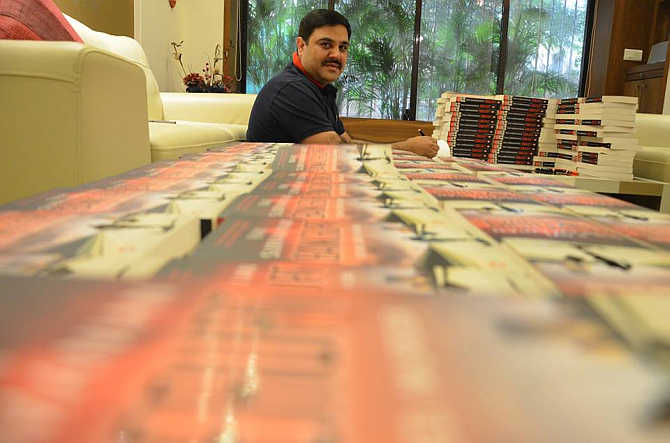
"I go out and solicit negative feedback. I ask people what they didn't like in my book," says best-selling author Ravi Subramanian, in an interview with Faisal Kidwai.
Balancing a professional career with a passion for writing requires a deft balancing act.
Ravi Subramanian, president and CEO of Shriram United Finance Limited, and successful author of five bestselling books, has managed this admirably.
Writing, he says, forces you to discipline yourself.
Bankers, he adds, referring to himself and other bankers-turned-authors, are probably better at marketing their books and standing up and convincing people to buy them.
Which is probably why he was able to buy a BMW with the royalties he received from his first book, If God Was A Banker.
Excerpts from the interview:
Your deal with Penguin for Rs 1.23 crore (Rs 12.3 million) is apparently the highest advance given by them to any Indian author. How did that happen?
Given the kind of books I write, I thought my stories might have an international appeal. That is why I wanted to go global.
Penguin has committed to this book -- they want to push Bankerupt in India in a big manner and also take it overseas. This gives me a bigger canvas.
We had a long discussion when Penguin approached me and I agreed because I felt if there was any publisher in this country who could take me international, it was Penguin.
You can buy Ravi Subramanian's books here.
...
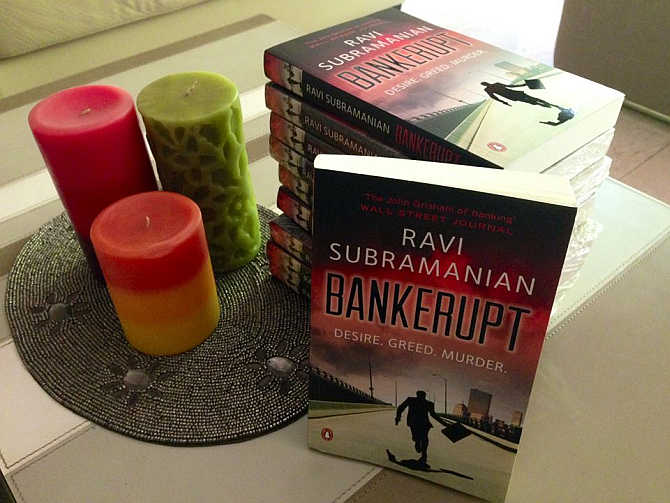
You bought a BMW with the royalties of your first book, If God Was a Banker. What did you buy with the royalties of your subsequent bestsellers?
Today, my writing can support my living; I can live off it. It gives me much more flexibility in whatever I do.
You’re quite a prolific writer -- you have written six books in six years. How do you manage that while holding on to your day job as CEO of Shriram Union Finance?
You become much more disciplined when you write.
There are, after all, only 24 hours in a day. That extra hour you need for writing has to come out of those 24 hours only. So you give up many things, such as socialising, partying, dinners with friends, watching television, etc.
Secondly, you become much more disciplined in your approach towards everything. You finish your work on time and go home on time so that you can start writing.
A lot of people I know come to work at 8.30 am, then sit and gossip and go home at 8.30 pm.
You have to remember that, when you are writing, you need to give extra attention to your work. Nobody should be able to point a finger at you and say that, just because he is writing, he is ignoring his work.
You have to be very organised and have to do things much more proactively.
...
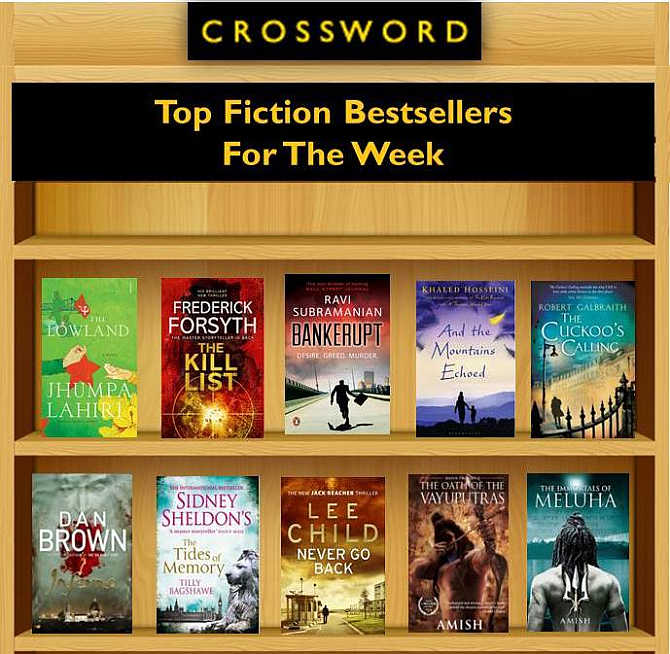
Your latest book has a rather unusual title.
Bankerupt is not a spelling mistake. It is intentionally spelt with an 'e'.
That’s because it's the story of an out-of-job banker who joins his wife at the Massachusetts Institute of Technology in an attempt to salvage his marriage.
MIT Boston is a simmering volcano waiting to erupt.
In a nightmarish turn of events, the banker finds himself accused of murder. The only way he can survive is to find the real culprits who want him dead at any cost.
Bankerupt was the ideal choice for a title, given that it’s about a BANKER who gets caught in an ERUPTion at the pinnacle of academia.
How did you think of writing a story based in an academic institution in the US?
Sometime last year, a professor from MIT had met me to present a credit underwriting model. It was aimed at easing up the loan appraisal process in the organisation that I work for.
That presentation got over in 30 minutes, after which we started discussing life in academia -- the profession he came from.
When I came out of the conversation, which lasted for over three hours, I had the broad direction of the plot for my new book.
Once the backdrop was clear, it took me nine months to write Bankerupt.
...
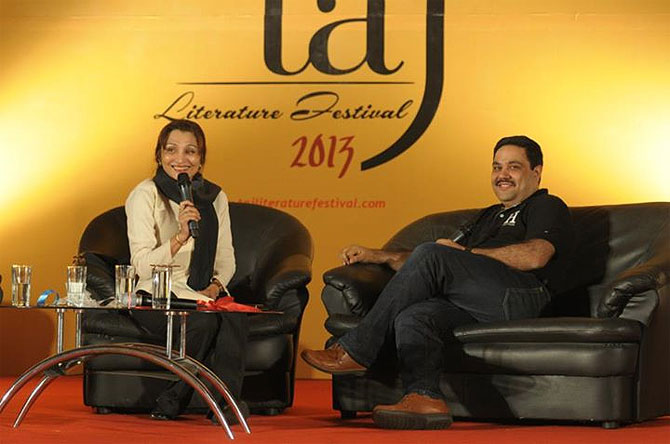
Did you always want to write a murder mystery?
What's a thriller without a murder?
A thriller needs to hold the interest of the reader from the very beginning. It needs to engage with them, hold them in rapt attention and prevent them from putting down the book.
A murder in the first few pages is a sure shot way to make sure the reader’s attention totally is focused on your book.
As (bestselling author) Jeffrey Archer once said, the battle between drooping eyelids and tiring fingers needs to be won by the tiring fingers.
How does that work out in Bankerupt?
Bankerupt is a one of its kind thriller, set in the polarised world of global banking and in the supposedly ethical world of academia.
It has an academician married to an investment banker, an Indian entrepreneur wanting to make it big and a tussle for power in the all important academia in the United States -- a place where academic brilliance leads to over-inflated egos and finally murder. All this is set intriguingly in the backdrop of the ongoing US elections and intense battle on gun rights.
Bankerupt is a story of a dangerous world where everyone has a motive to kill.
To me, it is a thrilling murder mystery that I hope will keep its readers on the edge until the end when the plot explodes.
...
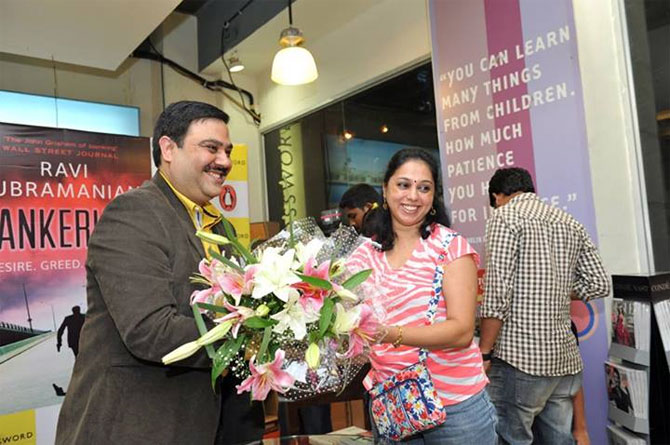
Tell us a little bit about your interaction with your readers. What kind of feedback do you get? How does that feedback impact you and how do you use it?
To what extent are your books defined by what your readers expect from you?
When you write, you put your thoughts in the public space. You get both positive and negative feedback.
You have to make sure that when you get positive feedback, you don’t start flying in the air and when you get negative feedback, you don’t react negatively.
In fact, I solicit negative feedback. I ask people what they did not like in my book.
You don’t necessarily change everything they did not like, but if you find a trend then maybe there is something there that you can learn from.
If you get 100 negative feedback and 15-20 of them have the same issues, then maybe you should change what you are doing.
For instance, many of my readers said they did not like the use of Hindi words and the use of colloquial language in one of my books. I saw the sense in their criticism.
In Bankerupt, I have not used a single Hindi word.
You need to learn from feedback and improve as an author. When you start taking feedback seriously, that’s when you become a better human being.
Have you started work on your next book?
I’m working on a plot. I should start writing again in 15-20 days after finishing promoting Bankerupt.
...
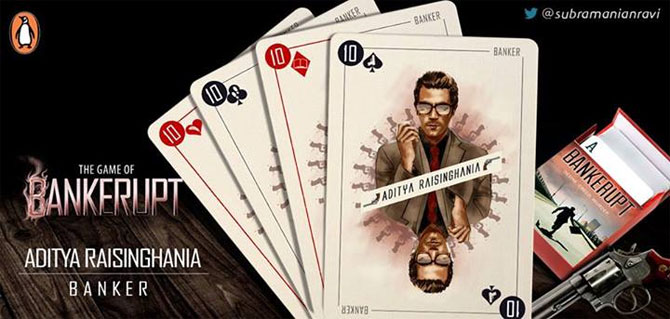
Why does writing fiction have such a pull for bankers -- look at yourself, Amish Tripathi, Chetan Bhagat, Upendra Namburi…?
It just happened that Chetan, Amish and a couple of others who are bankers started writing stories and became successful.
The only I can say -- apart from underlining the sheer coincidence -- is that bankers are much more practical, better networked, more relationship-oriented and clear in terms of how to break down a task into activities and pursue each of them. They are probably better at marketing their books and standing up and convincing people to buy their books. I think that’s one of the reasons why you see more bankers writing books.
But I don't think it's a trend.
A book does not have a better chance of succeeding just because it has been written by a banker.
It’s just that these guys wrote certain kinds of books that were different from what the others were writing.
In fiction, if people like one of your books, they tend to pick up your other books as well. These authors started writing quite early and, although I won’t call them brands, people recognise their names and buy their books.
...
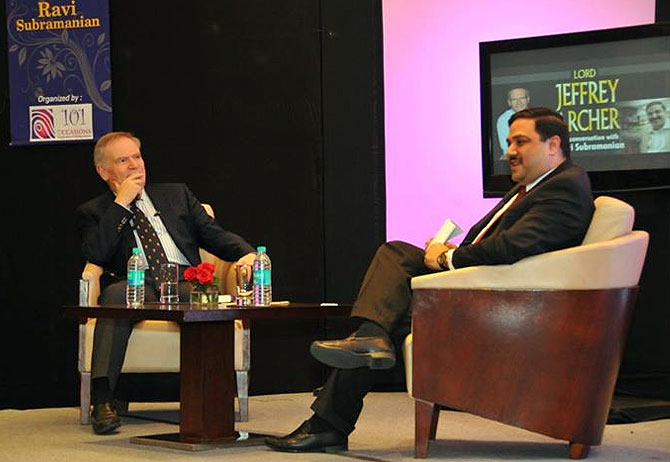
Compared to countries like the United Kingdom and the United States, Indians don't read as many books. Are you seeing an increase in the number of novels people are buying and reading?
English is not our native language. Hence the number of people buying English books here will always be fewer.
However, there is an increased interest in reading among the general public, which does translate to higher readership and consequently sales.
There is a positive disposition towards Indian authors and Indian fiction which is heartening to see.
Who are your favourite authors? Do you read other genres?
My favourite authors are Jeffrey Archer, for his story telling skills; John Grisham, for the completely new genre he created; and James Patterson, for the way he created a new business model out of writing.